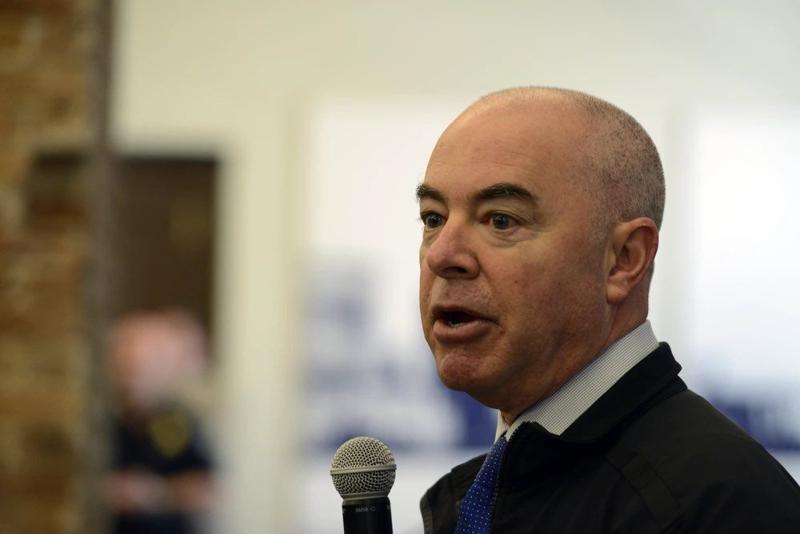Sixteen attorneys general, led by Ohio AG Dave Yost, called on Department of Homeland Security Secretary Alejandro Mayorkas to provide voter registration information to states.
The AGs “raise grave concerns that by failing to work with States to verify voter registration information, your office has failed to discharge its duty ahead of a national election,” the letter to Mayorkas states.
“Americans may differ about the best result in the upcoming election, but we trust that all Americans of goodwill should agree that the right to vote in American elections belongs to American citizens alone. Federal law endows citizens with the exclusive right to say who governs them. And it likewise obligates your office to coordinate with the States to protect the franchise by verifying the immigration status of any registered voter upon request,” the coalition argues.
The Oct. 15 coalition letter was sent as multiple states have already removed noncitizens from voter rolls. In Texas, 6,500 noncitizens were removed from voter rolls and its Secretary of State and Attorney General requested information from DHS as part of an ongoing investigation into potential noncitizens registered to vote.
One week earlier, on Oct. 7, Texas AG Ken Paxton sent a letter to the director of U.S. Citizenship and Immigration Services requesting it to comply with a request sent by the Texas SOS in September. The request asked DHS and USCIS to provide information on the citizenship status of potential noncitizens who registered to vote in Texas.
Paxton also provided a list of 454,289 registered voters in Texas “who have never had their citizenship verified,” he said.
The coalition of AGs says DHS is required to coordinate with states to verify voter registration information. “This federal-state cooperation is mandatory – not optional,” he said.
Under Mayorkas, DHS has provided delayed and inadequate responses to requests by several of the undersigned states to verify voter registration information, they said. “We are deeply troubled by DHS’s refusal to grant access to its Person Centric Query Service database” they argue. DHS has not granted states access because the information is “not appropriate to verify voter registrants,” according to a letter from the USCIS director.
“While it is a crime for noncitizens to register to vote, federal law has been construed by the courts to restrict States from requiring proof of citizenship as a prerequisite for registration,” AG Paxton argues. “Therefore, the federal government must comply with the law and provide the requested information in a timely manner to ensure the integrity of American elections.
“The Biden-Harris Administration has refused to abide by the law. They are legally obligated to assist States in their efforts to ensure that noncitizens are not registered to vote or actually casting ballots in American election. Secretary Mayorkas owes every state the requested information without delay.”
The coalition’s letter requested Mayorkas to provide them “with your plan to provide an adequate response to the State’s outstanding requests for verification of flagged, individual voter registrants and any future, similar requests” by Oct. 17.
“The privilege of participating in U.S. elections belongs to U.S. citizens alone, and the election looms closer by the day while early voting has already begun in Ohio and many other states. Your office is required to aid in protecting that right, not obstruct State efforts to comply with federal law and ensure election integrity,” the coalition argues.
The coalition includes attorneys general representing Ohio, South Carolina, Arkansas, Florida, Georgia, Indiana, Iowa, Kansas, Montana, Nebraska, Oklahoma, South Dakota, Texas, Utah, West Virginia and Wyoming.
This November, voters in eight states will approve or reject ballot measures related to noncitizens voting: Idaho, Oklahoma, Missouri, Iowa, Wisconsin, Kentucky, South Carolina and North Carolina.
Federal law prohibits noncitizens from voting. Seven state constitutions also explicitly prohibit noncitizens from voting: Arizona, Colorado, North Dakota, Louisiana, Georgia, Florida and Ohio. Certain jurisdictions in California, Maryland and Vermont permit noncitizens voting.






